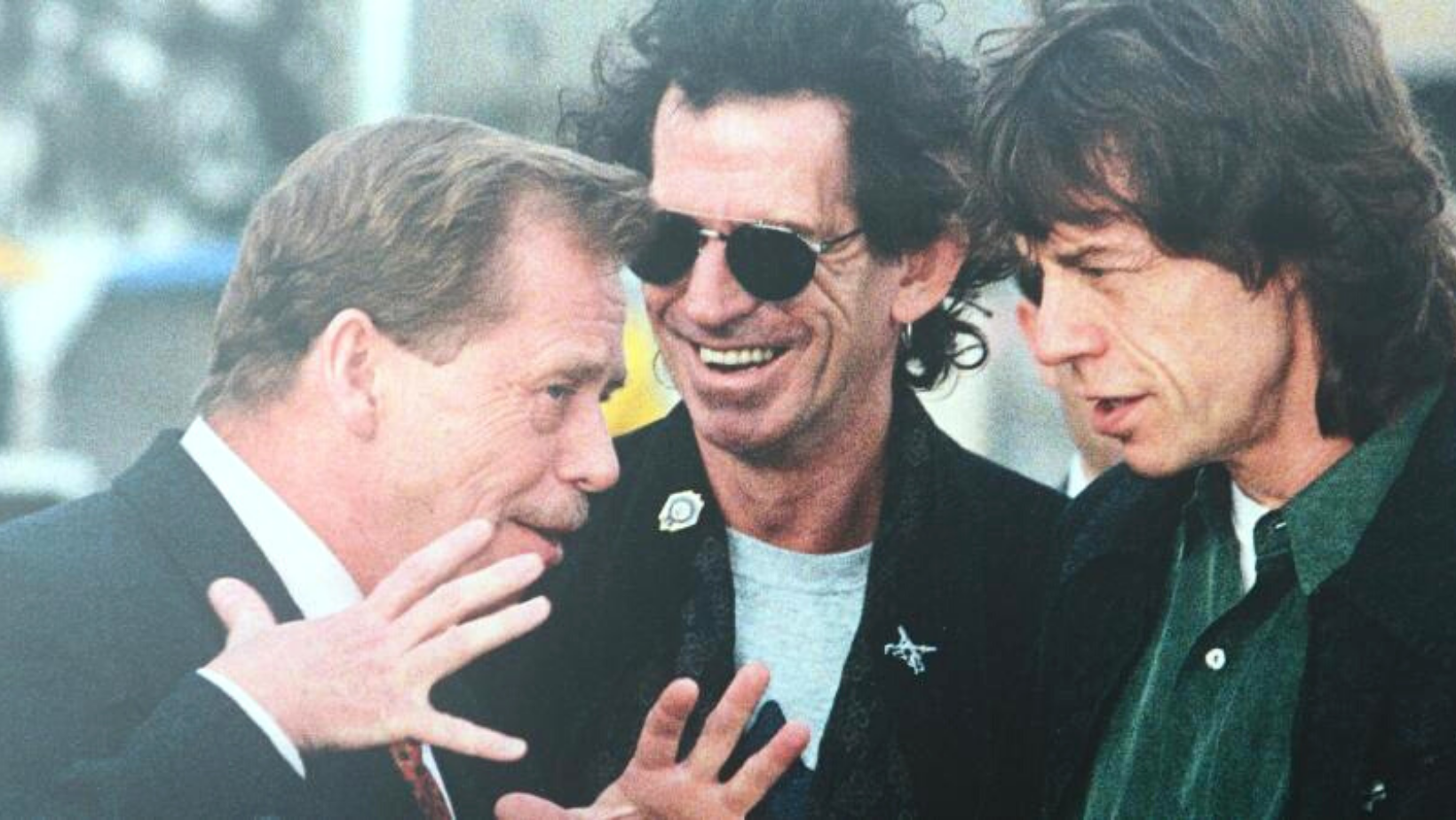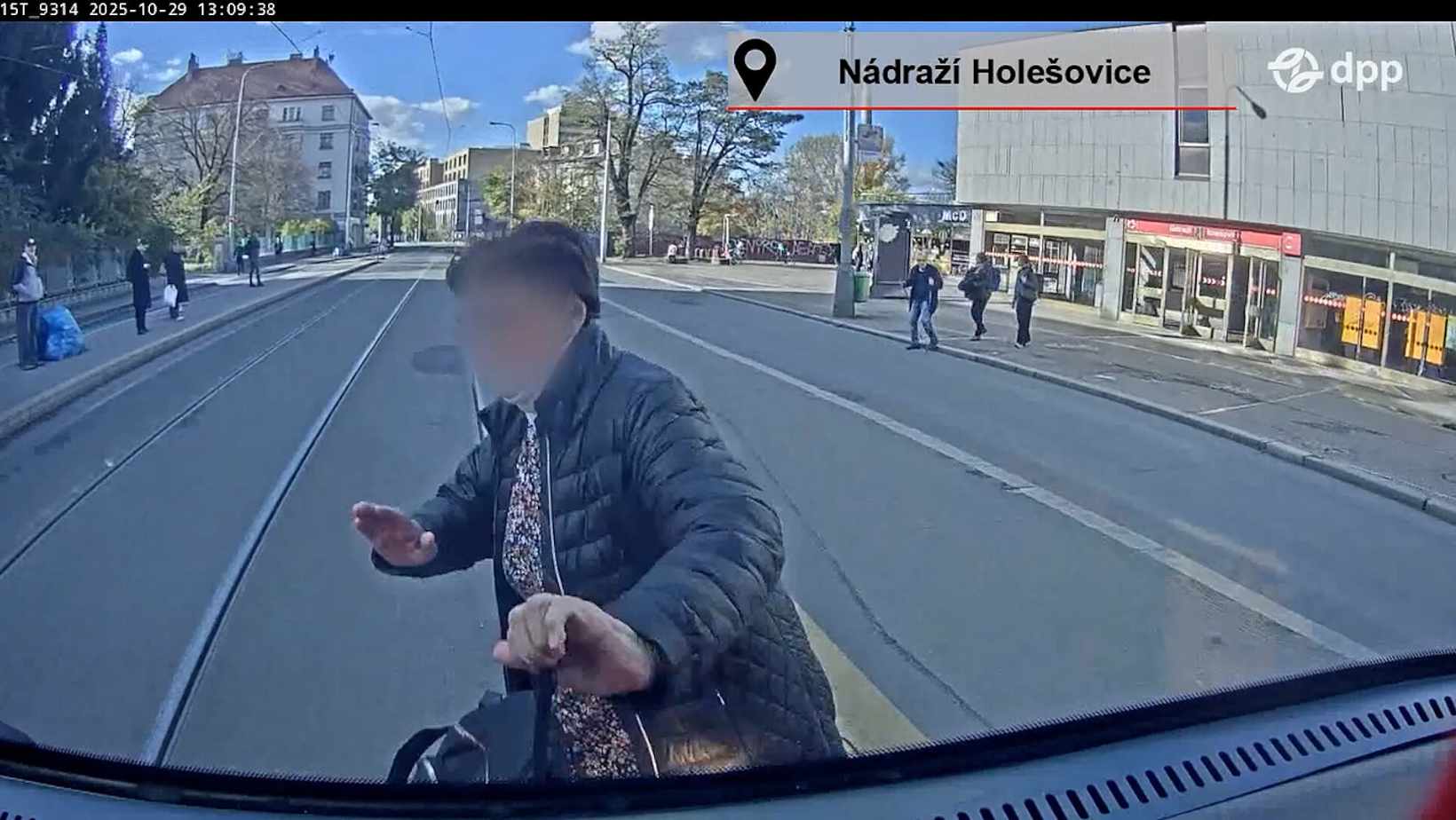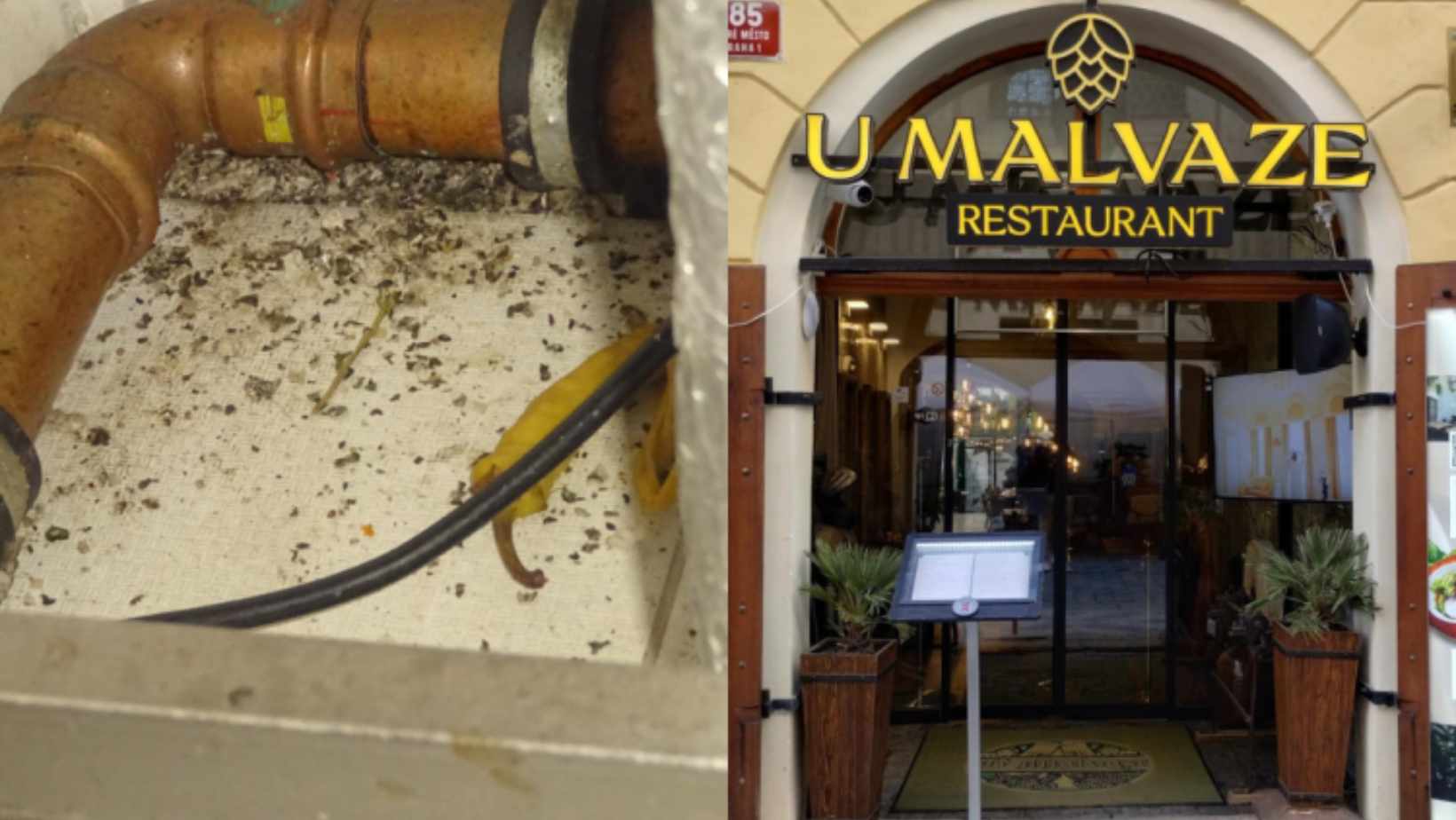The Rolling Stones first played in Prague 32 years ago, on August 18, 1990, at Strahov Stadium.
More than 100,000 people attended the show, which became a symbol of the country’s new-found freedom.
It was a special moment for Czechoslovaks, who could finally see live on stage stars they had only read about and whose music they knew from bootleg cassettes.
The date is no accident: it almost coincides with the twenty-second anniversary of the Soviet invasion of 1968. And everybody is in disbelief, stuck in that electric moment that always precedes the unimaginable.
Arriving in Prague on a government-supplied Tupolev Tu-154 plane on August 17, band members stayed at the Hotel Palace, a stone throw away from Wenceslas Square, and later had dinner at the invitation of Havel’s wife Olga Havlová in the restaurant Na Rybárně (which doesn’t exist today).
The evening continued with a visit to the renowned Jazz Club Reduta and a party in their hotel suite.
When suddenly the dense darkness is pierced by a cone of light. Silence breaks down into a roar. And like a mirage personified, Keith Richards, in blue jeans and a pink jacket, begins to caress his guitar strings.
The first notes of Start Me Up set the stadium on fire, tearing the years of silence and oppression to shreds with the wild power of the London sound.
Then he appears, the baronet, the fury, the icon, in a red sprint coat, it is Mick Jagger, who bolts from one side of the stage to the other, shakes and introduces himself shouting: “Dobrý večer, Praha!”.
For days a slogan had been circulating in the city: “Tanks are rolling out, the Stones are rolling in”. A slogan possessing the strength of a furious chorus, of a successful liberation.
With the sound of the Soviet tank tracks gone, now it is the electric guitars that do the vibrating: music, hedonism and transgression. And the irreverent tongue of the Stones, symbol of a cheeky lifestyle, dominated the Old Town for days.
“This was a confirmation that we are entering the world of free market, democracy, and free speech, and that we will see it with our own eyes. And that’s exactly what happened,” explained Czech journalist and musician Ondřej Hejma, who attended the concert and met with band members.
“The [Rolling Stones] concert at Strahov was a social event, a philosophical event and something like a milestone in history,” he reminisced. “After that, I went to other concerts of course. But this one was really very special.”
Less than a year after the Velvet Revolution that toppled the communist leadership in November 1989, the Strahov concert quickly became a symbol of the country’s newfound freedom after more than four decades of communist rule and cultural and artistic censorship.
-
NEWSLETTER
Subscribe for our daily news











